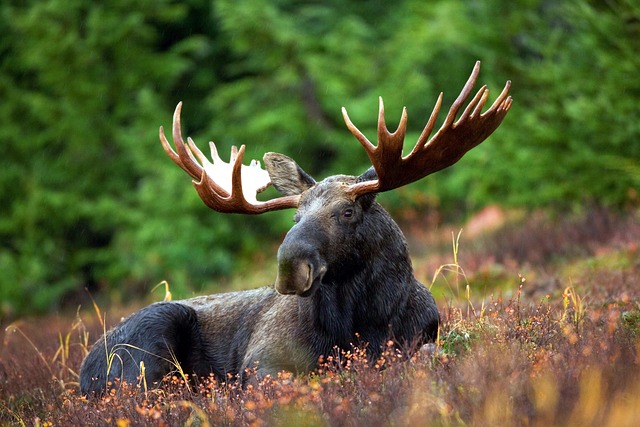Spis Treści
Can a Bull Hurt a Horse?
When it comes to interactions between different animals, it’s important to consider their natural behaviors, instincts, and potential for aggression. In this article, we will explore the question: Can a bull hurt a horse? We will delve into the characteristics of both bulls and horses, their interactions, and the potential risks involved. By the end, you will have a clear understanding of the dynamics between these two animals and the precautions that should be taken.
Understanding Bulls
Bulls are male cattle that are known for their strength, size, and sometimes aggressive behavior. They are typically larger and more muscular than horses, with an average weight ranging from 1,800 to 2,500 pounds. Bulls possess sharp horns that can be used as a defense mechanism or during dominance displays.
It’s important to note that not all bulls are aggressive. However, they have the potential to become aggressive due to various factors such as hormonal changes, territorial instincts, or feeling threatened. Aggression in bulls can be displayed through charging, head-butting, or even goring with their horns.
Characteristics of Horses
Horses, on the other hand, are herbivorous animals known for their speed, agility, and social nature. They have been domesticated for thousands of years and have developed a strong bond with humans. Horses are generally larger than bulls in terms of height, but they are not as heavy or muscular.
Unlike bulls, horses do not possess horns. Instead, they have strong hooves and teeth that they can use for defense if necessary. Horses are known to be flight animals, meaning their instinct is to flee from potential threats rather than engage in confrontations.
Interactions between Bulls and Horses
When bulls and horses are in close proximity, their interactions can vary depending on the circumstances. Here are a few scenarios to consider:
1. Pasture Sharing
In some cases, bulls and horses may share the same pasture or grazing area. This can be done successfully if certain precautions are taken:
- Ensure there is enough space for both animals to move freely and establish their territories.
- Provide separate feeding areas to avoid competition for food.
- Monitor their interactions closely, especially during the initial introduction phase.
By following these guidelines, the risk of aggression or injury can be minimized.
2. Aggressive Bull towards Horse
If a bull becomes aggressive towards a horse, it is crucial to prioritize the safety of the horse. Horses are not equipped to defend themselves against a charging bull. In such situations:
- Remove the horse from the immediate vicinity of the bull as quickly and safely as possible.
- Use barriers or fences to separate the two animals and prevent further aggression.
- Seek veterinary attention if the horse sustains any injuries.
Remember, the safety of both animals should be the top priority.
3. Aggressive Horse towards Bull
While it is less common for horses to display aggression towards bulls, it can still occur. If a horse exhibits aggressive behavior towards a bull:
- Separate the horse from the bull to prevent any potential harm.
- Assess the underlying cause of the aggression, such as fear, pain, or territorial disputes.
- Consult with a veterinarian or an equine behaviorist to address the issue and find a suitable solution.
Understanding the root cause of the aggression is essential for resolving the problem effectively.
Precautions and Safety Measures
When managing interactions between bulls and horses, it is important to take certain precautions to ensure the safety of both animals:
- Provide adequate space and resources for each animal to establish their territories.
- Regularly inspect fences and enclosures to prevent accidental contact between the two animals.
- Monitor their behavior closely, especially during the initial introduction phase.
- Consult with professionals, such as veterinarians or animal behaviorists, for guidance on managing their interactions.
Conclusion
While bulls and horses can coexist peacefully under the right circumstances, it is important to be aware of the potential risks involved. Bulls have the capacity to harm horses due to their size, strength, and aggressive tendencies. By understanding the characteristics of both animals, closely monitoring their interactions, and implementing appropriate safety measures, the risk of injury can be minimized. Remember, the safety and well-being of both animals should always be the top priority.



















